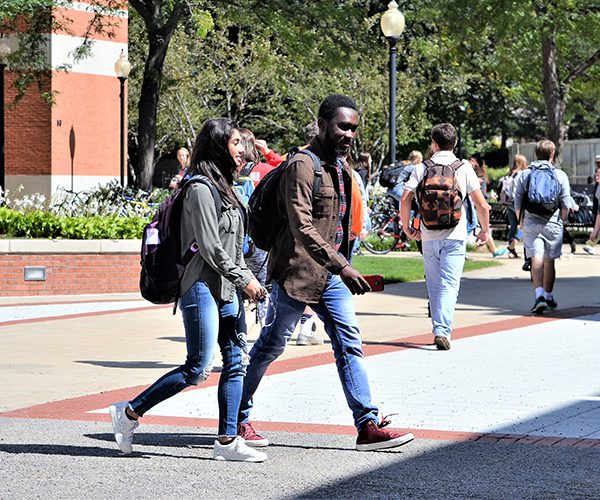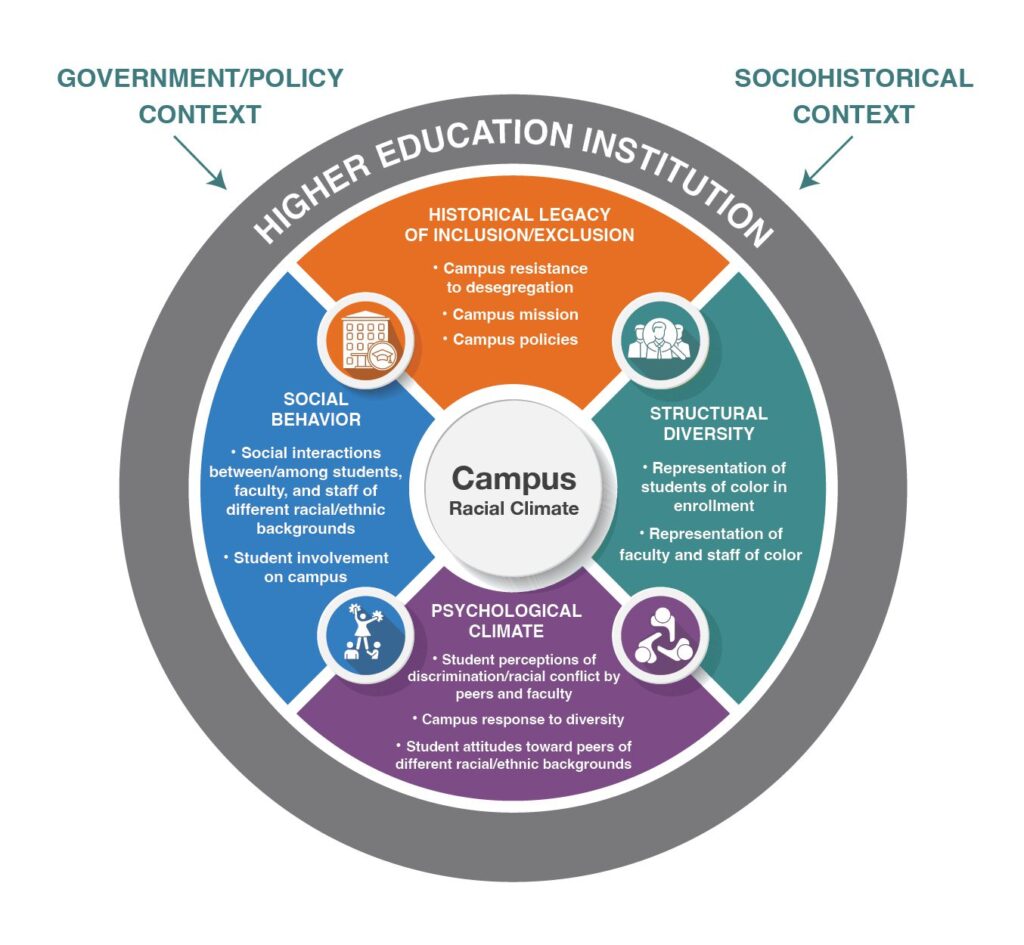Given the recent Supreme Court decisions banning affirmative action, along with state attacks on diversity, equity, and inclusion (DEI) efforts, students of color can feel isolated among their peers at predominately White institutions (PWIs), which often lack student and faculty diversity. The SCOTUS decisions have had a chilling effect in the field of higher education, with institutions often overextending the interpretation of the Court’s ruling. This overextension stems from fear that a school’s program or initiative might result in the loss of funding, calls for administrator or faculty resignation, or the next high-profile and costly lawsuit.
Anti-DEI proponents and extreme right-wing politicians have capitalized on this fear, calling for colleges and universities to remove scholarships for students of color and eliminate all mentions of race in the college admissions process — just two examples of deliberate overreads of the Court’s decisions. This external pressure and scrutiny has instilled extreme unease across college campuses, leaving administrators to carefully reevaluate their programming related to diversity and inclusion, and students of color to anxiously wait for the fate of their race-based organizations and programming, such as Black Student Unions.
However, the overcaution with which higher education administrators are proceeding is likely to result in the elimination of programs which are completely legally permissible on college campuses, as per the Education Department’s recently released guidance.
What message does it send to students of color when colleges and universities unnecessarily shut down programs that help students feel like they belong? Institutions must do more than share empty statements of inclusivity and diversity. To truly serve as an equalizer for mobility and opportunity, colleges and universities must instead take meaningful action to create the diversity and support systems on campus necessary to help all students of color succeed and feel like they truly belong at PWIs.
In a report, Ed Trust explores how a campus’ racial climate can affect students’ sense of belonging at PWIs. Students interviewed cited the lack of diversity on campus as contributing to microaggressions, taking a toll on their mental health, and fueling feelings of a lack of belonging.
“My imposter syndrome has gone through the roof. I’ve worked hard to get into my university and now that I’m here, it’s so hard to feel like I belong here and I feel like sometimes, the professors make that worse.” —Sabrina, a Black student
The lack of diversity on campus is impossible for students of color to ignore. A 2020 Ed Trust Report found that of the nation’s 101 most selective public colleges and universities, only 9% have a Black student population that is representative of the Black population of the institution’s home state. Only 14% of these institutions enroll representative numbers of Latino students. Another upcoming Ed Trust report found that of the nation’s 101 most selective private colleges and universities, nearly 80% of schools severely lacked accessibility and representation for Black students, and 87% of the schools severely lacked accessibility and representation for Latino students.
While institutions fail to reflect the rich diversity of our nation in their student body, racial and ethnic representation in faculty fares worse. A 2022 Ed Trust Report found that only 13% of the nation’s 101 most selective colleges and universities have a Black faculty population that is reflective of the institution’s, often already small, Black student body. Only 7% of these institutions have a Latino faculty that is representative of the Latino student body.
How might the outcomes of students of color change if their institutions committed to addressing this lack of diversity in student bodies and across faculties? How might students’ sense of belonging change?
Research shows that a strong sense of belonging fostered through targeted policy interventions can improve persistence levels, retention in school, grade point averages, and long-term health, especially for historically underrepresented students. It’s time for institutions to stand up to and fight back against anti-DEI advocates and their policies. The time is now for colleges and universities to stand proudly in support of their students of color, sending the clear message: you belong.







